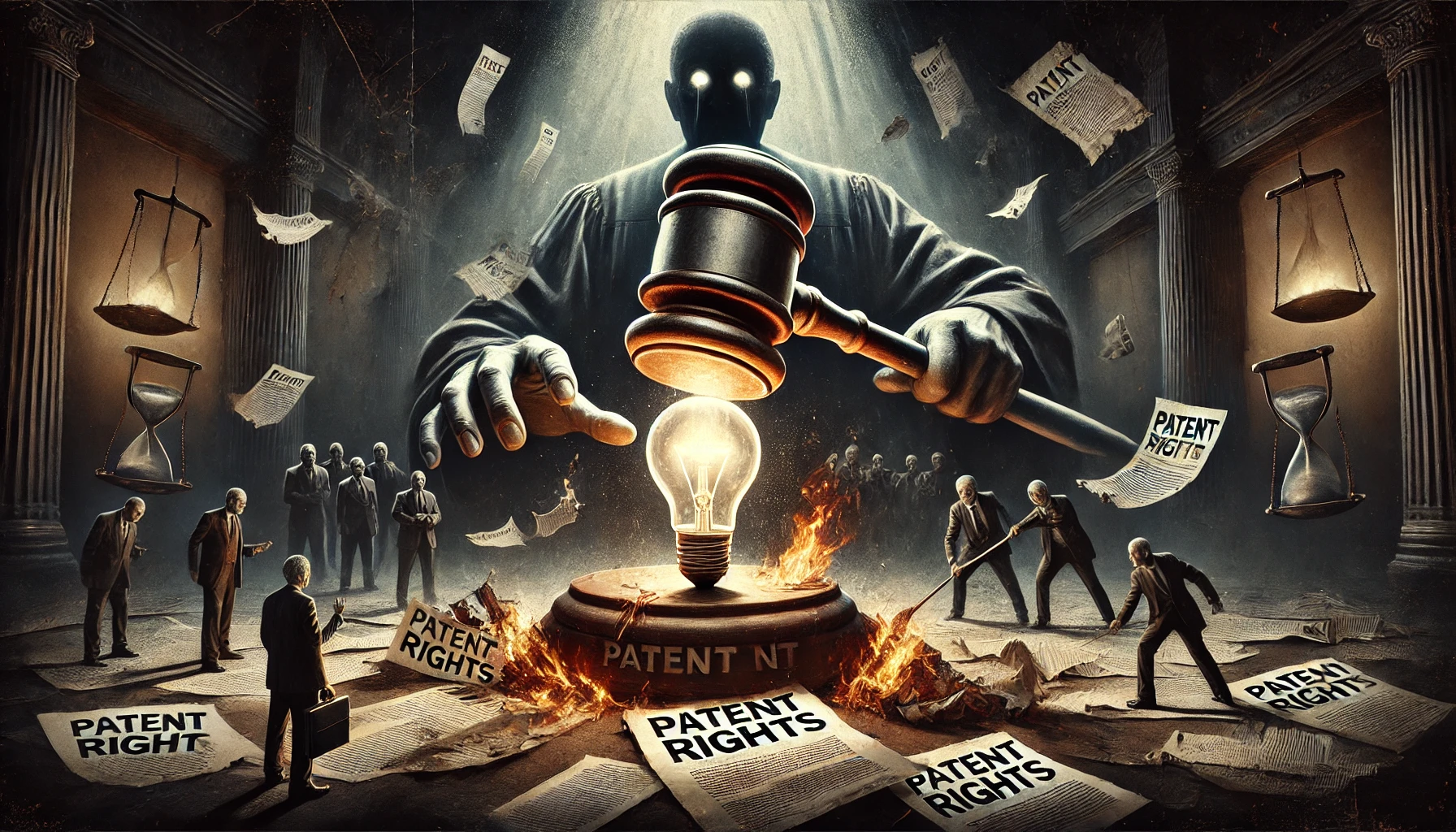
In the dynamic realm of innovation, small businesses and independent inventors are often the unsung heroes, propelling progress through their ingenuity and creativity. Central to their success is a patent system that not only offers robust protection but is also characterized by fairness. A strong and fair patent protection system not only shields the inventor’s intellectual property but also serves as a catalyst for economic growth, driving innovation and development. However, the landscape is not without challenges, with the Patent Trial and Appeal Board (PTAB) evolving as a contentious issue that disproportionately and negatively affects small inventors and businesses.
Fairness in Patent Protection
At the heart of the matter is the concept of fairness in patent protection. A fair patent system ensures that inventors, regardless of size or financial standing, have an equal opportunity to secure and defend their intellectual property. This inclusivity is crucial for fostering a diverse and competitive marketplace where ideas, not just financial resources, determine success.
A strong and fair patent system provides small businesses and independent inventors with the assurance that their investments in research and development will be protected. By granting exclusive rights to their inventions, patents enable innovators to recoup their investments and enjoy a period of market exclusivity. This, in turn, incentivizes further innovation, as inventors are motivated to push the boundaries of knowledge and bring new, groundbreaking ideas to the forefront.
Our country’s founding fathers recognized the importance of protecting intellectual property. It is at the core of the founding principles of our country. So much so, that the very first article of the United States Constitution provided for creating what would become the U.S. patent system. Yes, Article 1 of the US Constitution, which vests legislative powers to the US Congress, includes Section 8, where you will find these words: “The Congress shall have power…To promote the Progress of Science and useful Arts, by securing for limited Times to Authors and Inventors the exclusive Right to their respective Writings and Discoveries.”
The Break Down of our Patent System: The PTAB
From the very beginning, it was understood that a fair patent system is instrumental in establishing a level playing field. Small businesses often face the challenge of competing with industry giants who possess greater financial resources for legal battles. Fairness in patent protection ensures that legal proceedings are not skewed in favor of deep-pocketed corporations, allowing small inventors to defend their patents without being overwhelmed by legal costs.
However, the emergence of the PTAB has introduced a layer of complexity that tilts the balance against small inventors and businesses. Ostensibly, the PTAB was established to provide a quicker and more cost-effective alternative to litigation for challenging the validity of patents. While the intention was to streamline the patent review process, that’s not what has occurred.
A great majority of PTAB decisions have resulted in the invalidation of patents, disproportionately affecting small inventors. Critics argue that the PTAB, in its current form, is susceptible to abuse by large corporations seeking to invalidate patents held by smaller entities. The process is seen as favoring the interests of major players, undermining the very essence of fairness in the patent system.
This imbalance has a chilling effect on innovation, as small businesses may hesitate to invest in research and development if their patents are vulnerable to being invalidated through PTAB proceedings. The consequences extend beyond individual inventors to impact the broader economy of the United States.
In an era where innovation is a key driver of economic growth, a weakened patent system undermines the nation’s competitive edge. Investors, both domestic and international, may become wary of supporting small businesses in an environment where patent protection is perceived as uncertain. This hesitation stifles the flow of capital into innovative ventures, hindering job creation and impeding the overall progress of the US economy.
The critical importance of a strong, but also fair, patent protection system cannot be overstated for the well-being of small businesses, independent inventors, and, actually, the economy of the United States. While a robust patent system encourages innovation and protects investments, it is imperative to address the challenges posed by the PTAB to ensure that fairness remains at the core of the patent landscape. Striking the right balance will not only safeguard the interests of inventors but also uphold the principles that drive a thriving and inclusive innovation ecosystem.
Andre' DiMino is a technology business executive with an extensive engineering and science background in the design, development, commercialization and manufacturing of medical devices, precision electronics, environmentally-safe chemical formulations, and, personal care and cosmetic products. He has over 50 issued and pending patents as well as technical publications. He is President and CEO of ADM Tronics (OTCQB-ADMT), a technology-based research, development and manufacturing publicly-traded company in New Jersey and has had senior executive positions in other technology companies. With decades of experience in US and international regulatory requirements for medical devices, Mr. DiMino has been responsible for the commercialization of a number of innovative medical products and technologies. He has served as an independent technology consultant and advisor to investment bankers and technology startups. Mr. DiMino is a Board Member of the New Jersey Manufacturing Extension Program and serves on the Industrial Advisory Board to Computer Science & Engineering at Fairleigh Dickinson University. He holds a BS in engineering and an MBA in Finance.






